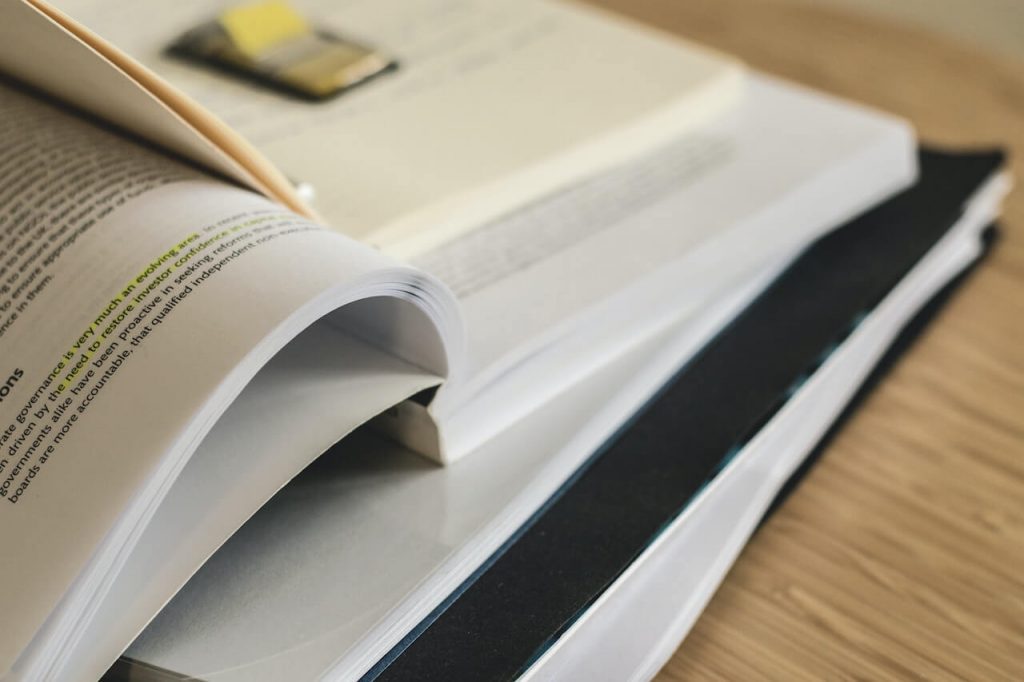Key Takeaways
- Failing a class lowers your GPA, but most schools allow you to retake the course to improve your grade and academic standing.
- If the failed class is a prerequisite, you won’t be able to move on to higher-level courses until you pass it, which can delay your graduation.
- Financial aid and scholarships often require maintaining certain academic standards, so failing a class may put your funding at risk.
- Multiple failed courses or a consistently low GPA can result in academic probation or even dismissal, but schools usually offer ways to appeal or improve your situation.
- There are many resources available, such as talking with professors, academic advisors, and tutoring services, to help you recover and succeed after a failure.
Failing is a natural part of the path to success, which is why you should always welcome failure as an opportunity to do better in the future. Nonetheless, you’ll still need to prepare for what to expect if you fail a class and what to do next. If you’re wondering what happens if you fail a class in college, whether you can retake a class, or whether failing a class affects GPA, in this article, we’ll answer all those questions and more.
What Are the Consequences of Failing a Class?

Failing a class can feel like a major setback, and in some ways, it is. It has consequences that can affect your academic standing, financial aid, graduation timeline, and even your confidence.
One of the most direct consequences is the impact on your Grade Point Average (GPA). Since GPA is calculated based on the grades you earn in your courses, a failing grade (usually recorded as an “F” and worth 0.0 on a 4.0 scale) pulls your average down. This can hurt your academic standing and limit your future options.
For example, many scholarships or financial aids and honors programs require you to maintain a GPA of 3.0 or higher. Some student clubs and academic organizations have cutoffs around 2.3 to 2.5. If your GPA drops below 2.0, you may be placed on academic probation, which puts you at risk of suspension or dismissal if things don’t improve.
Although GPA requirements vary by school, here’s a general idea of how they’re viewed:
- Below 3.0: often not enough for scholarships or honors
- Below 2.5: can limit participation in clubs or leadership roles
- Below 2.0: puts you on academic probation
Failing a class also affects your ability to move forward in your program, especially if the course is a prerequisite. Prerequisite courses are the foundation for more advanced classes. If you fail one, you won’t be allowed to register for the next level, which can delay your progress.
There are also financial implications. Most forms of financial aid including scholarships, grants, or loans, require you to maintain satisfactory academic progress. This usually includes keeping your GPA above a minimum threshold and passing a certain percentage of your classes. A failing grade could lead to reduced aid, the loss of a scholarship, or, in some cases, a temporary suspension of financial support until you appeal or improve your academic performance.
Another serious consequence is the possibility of being placed on academic probation. If you fail one class, your school may simply issue a warning or encourage you to meet with an advisor. But repeated failures or a consistently low GPA could trigger probation.
Finally, there’s the cost, both in time and money. Failing a class usually means you’ll have to take it again, which means paying for it again. If the failure prevents you from progressing, it might push your graduation back by a semester or more. You may also need to take extra courses in future semesters or enroll in summer classes to catch up. That adds tuition, fees, and sometimes housing or travel costs, depending on your situation.
What Can You Do When You Think You May Fail a Class?
Struggling to finish assignments and underperforming in a class doesn’t mean all hope is lost. You can still improve your grade and complete the class successfully. However, you’ll need all hands on deck and hard work to recuperate the situation. If you’re worried you’re failing a class, we suggest following the tips below to get a hold of the case immediately.
Explore different learning styles
Exploring different learning styles is essential for academic success, enabling individuals to identify the most effective and tailored approach to acquiring knowledge. Learning styles encompass various methods such as visual, auditory, kinesthetic, and reading/writing, each catering to different preferences and strengths. By understanding one’s predominant learning style, students can optimize their study techniques, making absorbing and retaining information easier. Recognizing and adapting to a specific style fosters a deeper comprehension of course material, enhances memory retention, and reduces the risk of failing a class.
Talk to your professor
If you notice you’re failing a class, you must talk to your professor as soon as possible. Be honest and discuss why you think you’re falling behind and what you can do to repair your grade. Your professor may let you deliver missed assignments and projects or offer extra credit. Whatever their advice is, make sure to follow it and do your best to get better grades.
Talk with your academic advisor
If you’re failing a class and you’re looking for options, you can always talk to your academic advisor. They can help you review all your options to protect your GPA and find effective studying strategies. Suppose you face difficulties due to family emergencies or medical and mental health issues. In that case, your academic advisor can advocate for you to get an incomplete and retake the course in the next term.
Check college policies
Different policies dictate the consequences of failing a class depending on the university. Some universities don’t take into account the failed courses in the overall GPA, whereas others do. Here at the University of the Potomac, you’ll find college policies designed to help students overcome a failing grade without grave repercussions.
Hire a tutor

If you find that you’re struggling with the subject matter and need extra help understanding it, a great option is to find a tutor. Because private tutors can be expensive, you can speak with your professor or academic advisor to find out if there are available student tutors that excelled in that course. A student tutor will relate better to your struggles and be able to explain the subject matter simply.
Retake an exam
You can always ask your professor to retake the exam before the final results are published. They could be even more understanding if you had an emergency that caused you to underperform, which is why you should be honest and open when requesting to retake an exam.
Perform extra credit
Your professor may offer extra credit for making up for a portion of the grade. Extra credit may consist of additional assignments for you to work on as well as supplemental study materials. You can see it as an excellent opportunity to expand your knowledge on the subject and catch up with others.
What If You Failed a Class in College?

Say worst come to worst, and you’ve failed a class. You’ll still have the opportunity to undo some of the damage to your GPA by retaking a course or consider it as a sign that you’re incompatible with your major. So, there’s always hope to get back on track and improve.
Don’t feel overwhelmed
Interested in pursuing a degree?
Fill out the form and get all admission information you need regarding your chosen program.
This will only take a moment.
Message Received!
Thank you for reaching out to us. We will review your message and get right back to you within 24 hours.
If there is an urgent matter and you need to speak to someone immediately you can call at the following phone number:
- We value your privacy.
While it may seem like a catastrophe, failing a class isn’t, which is why you shouldn’t let it get to you and overwhelm you. Being overwhelmed may worsen the situation and paralyze you from working harder and improving your GPA. A failing grade is more common than you think, and as long as you do damage control, it won’t gravely affect graduating. Additionally, if you are a freshman, you can use the internet to search for tips and tricks on preparing for freshman year of college and other information.
Ask for help
College years can be challenging, so you shouldn’t shy away from asking for help when needed. Talking to your college counselor will help you overcome a failing class emotionally and also offer solutions like joining study groups, clubs, meetings, etc. You can also talk to your peers and parents to get a firsthand account of their experiences with a failing grade. You should keep in mind that you don’t have to go through it alone, and sharing the weight with others will help you immensely.
Retake a class
As mentioned above, if you fail a prerequisite class necessary for your major, you’ll have to retake the course. But you can also retake a class for grade forgiveness (a passing grade replaces a failing grade) if your school has a grade forgiveness policy, which is applicable here at UOTP.
That said, retaking a class is a great option for improving your GPA and challenging yourself to get a good grade. However, every school has a specific limit to how many times you can retake a class, and also, you should keep in mind that you’ll have to pay for tuition each time.
Consider a different major
While switching majors is a tough decision to make, it can open more doors for you. Difficulties in a prerequisite class can signal that your skillset doesn’t align well with the course. Not being compatible with a major doesn’t mean you lack anything, but there are far better options for you. By considering other paths, you’ll know yourself better and find your true calling.
The Bottom Line
Failing a class can feel overwhelming, but it’s important to remember that one setback doesn’t define your entire academic journey. Many students, more than you might think, face academic challenges at some point during college. Whether it’s due to difficulty understanding the material, balancing school with personal responsibilities, or just a rough semester, setbacks happen. What matters most is how you respond.
Most schools offer second chances, whether it’s through retaking the course, using academic support services like tutoring or mentoring, or working with advisors to rebuild your schedule and plan. These resources are designed to help you succeed, not punish you for falling short.
So if you’ve failed a class, don’t panic. With the right mindset, effort, and support, recovery is always possible. Use the experience as motivation to grow, learn, and move forward stronger than before.
Frequently Asked Questions (FAQ):
What Are the Consequences of Failing a Class?
Failing a class can have several consequences, including a negative impact on your GPA, potential delays in graduation, and implications for your academic standing. It may also affect your eligibility for scholarships and financial aid.
How Does Failing a Class Affect My GPA?
Failing a class can significantly lower your GPA, as the failing grade is factored into your overall GPA calculation. The extent of the impact depends on the weight of the course in your overall credit hours.
Can I Retake a Class I’ve Failed?
Typically, most colleges and universities allow students to retake a failed class. The process for retaking a class may vary by institution, but it often involves registering for the course again and completing it with a passing grade. Some schools may restrict the number of times you can retake a course.
What Should I Do If I Think I’m Going to Fail a Class?
Taking action is essential if you believe you’re at risk of failing a class. Contact your instructor for help, utilize academic support resources such as tutoring or study groups, and consider options like course withdrawal if necessary.
Does Failing a Class Impact My Financial Aid?
Failing a class can impact your financial aid if it leads to a drop in your GPA or if you fail to meet the satisfactory academic progress (SAP) requirements set by your financial aid office. Be sure to check with your school’s financial aid office for details on how failing grades may affect your aid.
How Can I Recover Academically After Failing a Class?
Recovering academically after failing a class may involve:
-
- Retaking the course.
-
- Improving study habits.
-
- Seeking academic advising.
-
- Using available resources to ensure success in future classes.
Should I consider withdrawing from a class instead of failing it?
Withdrawing from a class before failing is a strategic option to avoid the negative impact on your GPA. However, it’s essential to understand your school’s withdrawal policies, as there may be deadlines and financial implications associated with course withdrawal.










